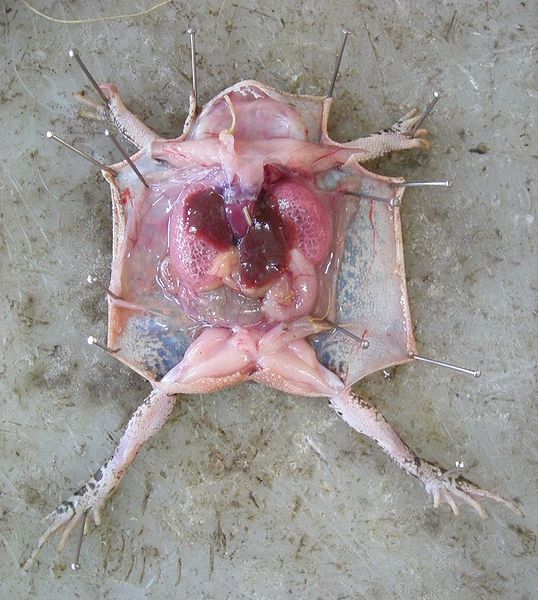 |
Image: Wikimedia commons, Muhammad Mahdi Karim |
 |
Thanks to Glasgow University Registry and Steve Franey for retrieving this information and for useful discussions with CAR Boyd, O Hutter and Michael Lucas. |
Besides rising student numbers, several other factors have contributed to physiology's lamentable decline. Problem Based Learning (PBL), imported from North America was widely adopted in various guises throughout the UK medical schools during the 1990s. It avowedly aims to encourage self-directed learning and to erase the artificial barriers between the -ologies by promoting an integrated or "holistic" approach to medicine. It was also seen as a means of shifting the increased teaching load away from active researchers to non-specialist "facilitating" staff. But its adoption has meant a comprehensive loss of autonomy of the biological scientists who have participated in this venture. Clinicians now take a leading role in pre-clinical teaching, largely displacing pre-clinical scientists who are more in touch with basic physiological processes. Scientific content taught in the context of clinical problems omits much basic science, which is regarded as inessential digression from the clinical problems upon which the course is centred. PBL is much more appropriately suited to medical teaching in North America, where every medical student has studied biological sciences at college level prior to entering medical school. Undergraduate British medical students only rarely have equivalent experience, so realistically can only be expected to integrate knowledge and solve problems once they have acquired a firm understanding of basic sciences. Another factor contributing to the decline of physiology courses has been the loss of physiology departments as a result of their merging with schools of biological, life, health, or medical sciences. Only one or two discrete academic physiology departments remain in the United Kingdom. Resource allocation within the preclinical schools, formerly controlled by academics working at the pre-clinical faculty or departmental level, is now centralized and controlled by senior administrators and clinicians. The financial and man power resources are redirected towards the more highly prioritized needs of the medical school rather than to science departments. Although the "old fashioned approach" of incorporating extensive laboratory courses in physiology into medical and medical science courses is costly in time, labor and space, their omission may prove to be even more costly. Eventually British graduates will lose out to their competitors trained in Continental Europe, where universities mostly still devote serious attention to teaching practical skills to medical and science undergraduates. linkurl:R.J. Naftalin;http://f1000.com/thefaculty/member/788525835890041 is Emeritus Professor of Physiology, King's College London and a F1000 Member since 2006. He was trained in medicine at Glasgow University and in biochemistry London University.
**__Related stories:__***linkurl:NY med school stops teaching with dogs;http://www.the-scientist.com/blog/display/53901/
[27th November 2007]*linkurl:Managers on a Mission: Med schools begin to quantify research, teaching, and patient care;http://www.the-scientist.com/images/yr1999/apr/woodbury_p1_990426.html
[26th April 1999]*linkurl:Scientists Should Become Active In Education;http://www.the-scientist.com/images/yr1998/may/comm_980511.html
[11th May 1998]





















